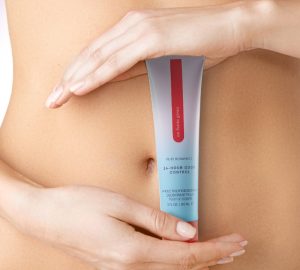Boost Your Mood & Elevate Your Mental Health
Science-Backed Strategies for Positive Well-Being
We all feel down in the dumps from time to time. However, when a low mood takes over it may seem like a black abyss. Depression can be a serious medical condition and may warrant a visit to your health care provider. Depression is one of the most common illnesses women face and antidepressant medications may be necessary. Here are a few helpful tips to recognize the common signs and symptoms of depression and some quick easy non-medical interventions.
**Always remember: do not ignore your low mood and or depressive thoughts. You are not alone! It is a neurohormonal dysregulation and it’s always important to seek professional medical care. Your primary care physician, OBGYN, or a psychiatrist can always provide some assistance.
Signs and Symptoms of Depression:
-
Irritable or depressed mood that is persistent
-
Sleep disturbances – either too much or too little, especially during the daytime
-
Low motivation and loss of excitement in activities that used to give you joy and pleasure
-
Excessive guilt
-
Low energy and lethargy
-
Poor concentration
-
Anxiety, palpitations, or panic attacks
-
Thoughts of hurting yourself or others
if you have thoughts of self-harm or of suicide, seek medical care. There are also resources available 24/7 if you are in need of help. You can always talk to someone on the phone, text, or walk in to a local clinic.
Here are some easy tips to help ease a low mood:
Diet
There is no specific depression diet but it’s always a good idea to monitor what you are eating. Limit sugary treats, alcohol, and caffeine. Try to eat a diet rich in fruits, vegetables, and unprocessed foods. There is some limited evidence that Omega-3 fatty acids (found in salmon or tuna) and folic acid (found in spinach and avocados) may help bolster a lowered mood.
Exercise
Regular exercise may boost your endorphins, otherwise known as the feel-good hormones, in your brain. Exercise can help with cardiovascular health, weight loss, and overall self-esteem.
Sleep
Sleep is directly related to mental health. Try to practice good sleep by going to bed every night at the same time, limiting electronics and television in the bedroom, and creating a restful experience in the bedroom.
Set Realistic Goals
Start small and build from a realistic starting point. Do tasks in small bites and you will feel accomplished once you manage a few tasks. Set small goals to accomplish every day and grow from there.
Challenge Negative thoughts
Recognize you are not your thoughts and you may be suffering from negative thinking. Recognition is the first step towards changing and challenging this negativity. Recognize, then extinguish those thoughts from your brain and refocus your attention toward something more positive and optimistic. It may take some time to master, but it can help you on the road to feeling better.
Supplements
While many supplements are heralded as the cure-all for lowered mood and depression, some may interact with conventionally prescribed medications and most herbs and supplements have some side effects. Some supplements that may be linked to improved mood include: 5HTP, St John’s Wort, SAMe, L Theanine, and Fish Oil. It is always wise to consult with your health care professional before starting a supplement or herbal remedy.
Complementary and Alternative Medicine
Acupuncture and meditation may be good choices when you are suffering from a low mood. There is some evidence that acupuncture has helped people with depressive symptoms. Meditation has also been shown to refocus the brain when it comes to negative thinking and emotions.
Have Fun
Plan some outings with friends or family. Try to immerse yourself in a new hobby or book. Relax and enjoy life. Focus on situations and people that build you up and enhance your life. Avoid things that drain your energy.
Nurture your relationship
Having an intimate sexual relationship can boost your feel-good hormones and help you remain connected with your partner. Focus on maintaining your connections with your lover or partner. If you’re not in a relationship with another person, nurture your relationship with yourself. Orgasms are proven to have big health benefits.
Seek Medical Care
Some people may need prescribed medications to help reduce their feelings of depression. Depression is not something we can ultimately control. It’s a medical condition. If you are suffering from depression and your symptoms are persisting or worsening, do not hesitate to get medical care. Depression is not a sign of personal flaws or weakness; it is a biochemical imbalance and very often can be safely and effectively treated with medications.
Depression is not something that can be cured with the right attitude. It can affect all parts of your life and seem like a never-ending cycle. There is no one solution for everyone. Find out what works best for you. If you’re suffering from depression, you are not alone. If you are looking for more resources, please go to this helpful list from the CDC.
Sex On The Spot, Or On The Calendar?
5 Tips For Curvy Girl Sex
Michael Krychman
MDCMHis special interests include menopausal health, hormone therapy, sexual pain disorders, and loss of libido, chronic medical illness and medical devices and their impact on female sexual function. He is a well-known speaker who is featured locally, nationally and internationally. He has published many articles in peer-reviewed journals and has been featured in many scientific journals and lay magazines. Dr Krychman is an active reviewer for the Journal of Sexual Medicine. He was the Scientific Chairman for the 2010 International Society for the Study of Women’s Sexual Health annual educational meeting. He is an active member in good standing in North American Menopause (NAMS), International Society sexual Medicine (ISSM), European Society Sexual Medicine (ESSM), International Society Study of Women’s Sexual Health (ISSWSH), American Society of Sex Educators, Counselors and Therapists (AASECT) and American College of Obstetricians and Gynecologists (ACOG). He was a member of the Standard Committee for ISSM and has been a guest professor at the ESSM Sexual Medicine Summer School in Oxford, England. He was the creator of the recent WISH Initiative (Women’ Initiative on Sexual Health: www.yourvoiceyourwish.com) and the 2013 recipient of the WISH Outstanding Achievement award given by the ISSWSH. He is also on the professional advisory board for the Patty Brisben Foundation.
Dr. Krychman’s has published 7 books including his most recent one: The Sexual Spark, 20 Essential Exercises to Reignite the Passion, 100 Questions & Answers for Women Living with Cancer: A Practical Guide to Female Cancer Survivorship has been recently published, 100 Questions and Answers about Women’s Sexual Wellness and Vitality and Breast cancer Sexuality, Sensuality and Intimacy. He has been featured on the Today show and in the New York Times and US News and World Report World Report, The Wall Street Journal, New York Times, Health Magazine and many others. He was named one of Orange County Top Doctors for 2015 and 2016 in Menopause, Sexual Dysfunction and Vulvar Pain. In 2019 and again in 2020, he has been named an Orange County Physician of Excellence by Orange Coast Magazine in Survivorship, Sexual Medicine and Menopause.









